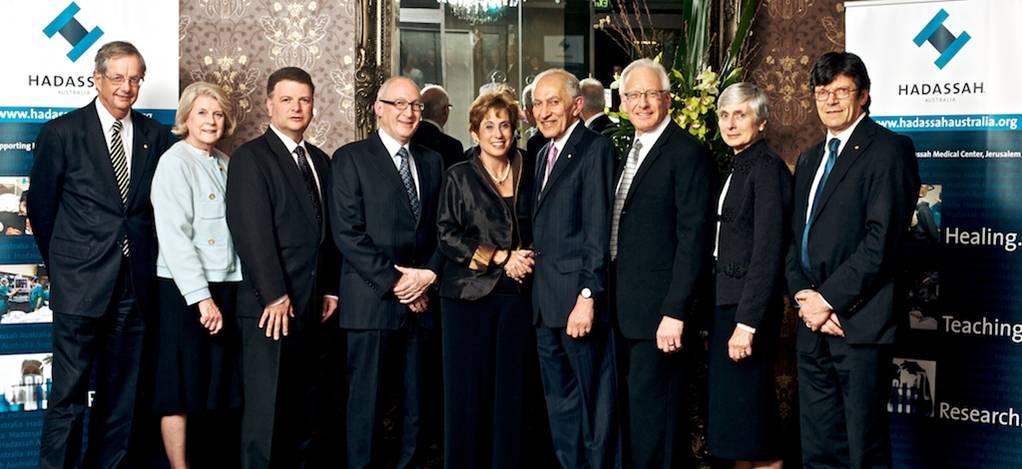
During the last week in August, Hadassah Australia hosted four major health initiatives, which addressed crucial health concerns facing both its local communities in Melbourne and Sydney and the global community. Three of the four events dealt with neonatal male circumcision as a means to prevent the spread of HIV/AIDS; the fourth was a workshop on best practice to advance global health conducted by Hadassah Australia and Monash University at the 63rd Annual United Nations Department of Information/Nongovernmental Organization Conference. (Click here for article on UN Conference in this issue of the eBulletin.)
“Hadassah Australia has established a reputation for excellence as an advocate of medical and related issues that affect communities worldwide. Often these issues are difficult and challenging, but Hadassah pushes through regardless. It’s their signature, and we should be thankful for it.”
Professor Richard Larkins AO
Former Vice Chancellor and President, Monash University
A luncheon and public forum held in Sydney addressed the topic, “Infant Male Circumcision: A Parent’s Dilemma.” It brought together eminent scientists from Australia and overseas to consider such issues as helpful policies in relation to male circumcision in different countries, the Australian perspective on circumcision of infant males, societal attitudes toward the practice, and ethical concerns. A highlight of the week was the 2010 Hadassah Australia Dinner, hosted for over 200 guests in Melbourne, featuring Keynote Speaker Nancy Falchuk, President of Hadassah, and Dr. Inon Schenker, Founder of the Jerusalem AIDS Project and head of the Operation Abraham Collaborative, an initiative of Hadassah and the AIDS Project, which is preventing the spread of HIV/AIDS through male circumcision. During the gala evening, Prof. David de Kretser AC, Governor of Victoria, was presented with the 2010 Tikkun Olam (Repair of the World) Award.
Over the last six years, Hadassah Australia has hosted a series of hard-hitting, incisive community forums that have canvassed medical issues of concern to Australian and international communities. For more information contact Hadassah Australia at Australia@hadassah.org.
